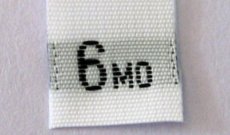I wanted to make a full list of problems that I hope to see solved in my generation. But new year resolutions usually don't last a generation. So this year, I want to put one item on the list. Just one thing I would like to see solved this year. And that thing is Social Media.
What is broken with social media?
Everyone has a different answer. There are the political issues, the echo chambers that amplify ideas, or the privacy nightmare we now have to live with. But all these are just the symptoms of the same fundamental issue.
When the car was first invented only a select few had access to it. It was not important to have formal training because it started at a small scale. But as the car became available to the mass, we either had to train people to drive properly or the roads would turn into chaos. To operate a vehicle today, you are required to have a driver license. You have to learn to drive and show basic understanding of the rules, by passing a driving test, before you can operate a 3 ton machine on the roads.
Social Media quickly turned to chaos. Grow a community large enough and it quickly becomes an unsupervised 3 ton machine. The problem is that, unlike cars which are physical objects that can be engineered and studied, it's hard to understand when you are actually driving into another person on the web.
We instantly see the effect of a bad car driver. But with social media, we are still studying the possible effects of a bad actor.
My goal here is not to propose we regulate social networks, this will quickly turn any regulated platform into a desert. But instead, we should teach people how to use them in the first place.
So what is broken with social media? The answer is: Us.

The web started innocently. Every interaction was a marvel of technology eclipsing the societal impact. How can connecting the entire world population possibility go wrong? Isn't communication something that is always encouraged? Well, if you put them all in one single platform operated by a single player, this player will eventually use it for his own benefit.
Technology is not inherently good. We have to make it good.
Social Media is here to stay, so how do we train people to use it properly? We tell them about the options.
For example signing up for twitter, facebook or google can be done in a single interaction right on the homepage. But deactivating your account is a multi-step process that quickly confuses users into giving up.
Sometimes a company will require you to talk with a customer support agent just to get you to deactivate your account. The state California had to pass a law, Bill No. 313, to allow users of subscription services to cancel their subscriptions without any fuss. It is not in the interest of the platform owner to tell its users about all the options available.
So not only we have to learn how to use social networks properly, we also have to learn how they are currently used against us. Here are a few examples we can train for:
- Dark Patterns: The platform will hide all options that only benefits the user.
- Urgency: Tactics used to create a sense of urgency, especially during a sale.
- Ads: Differentiating real content vs sponsored content.
- Content Farms: Articles from content farm have the appearance of information, but are created only to peak interest and create ad impressions.
- Stage: Videos that are staged, but give the impression of being unscripted.
- Choice: The user is not required to consume content.

I am a light twitter user. Every time, I come to twitter and I see that they have a new privacy rule, or that they have changed some default behavior, the first thing I do is go to the settings and try to look for a way to revert it back. One of the most powerful methods companies use to control the mass is by controlling the default behavior. And the power that users tend to forget that they have, (dark patterns in action), is that they can change the default settings.
My proposition to solve the problem of social media, is by educating users that they have options. They do not have to conform with whatever the platform owner dictates. They can use it to their advantage or even switch. And when the owner tries to restrict an option, we should remember that we are not required to be on social media. We don't even have to find a scapegoat to blame for bad interaction.
The list above is not exhaustive, but it could be a start to encourage the user into a learning mindset. Let's not use social networks blindly anymore.





Comments(2)
Robert :
Ads: Differentiating real content vs sponsored content.
I'm wondering when they will fine with such an HEAVY "ticket" Mr. Google
There is a independent stat done in UK that reports 51% of people is unaware that the first 4 results of google , aren't organic results (FYTK they are google ads)
they are camouflaged by real results.
An Google keeps them camouflaged because if @Goolge they would make them as the same google imposes to blog and website owners the manner to publish the adsenses .. (FYTK squared ads by google on third party websites)
( ... what an incongruence ... )
companies would not pay so much for adwords ...
Yes out there, the internet is filled of dirty games
and those dirty games are based on people carelessness and default behaviors
nobody cares so let's make the most of it!!
Ciao Ibra (Robert, Verona, Italy)
Ibrahim author :
Thanks for adding to it Robert.
Yes, you are right. Google used to have a different background color for the first results to let you know that these were actually ads. Now they look just like the search result. If anyone complains, they can say that these are clearly labeled
Ad.It's all dark pattern.
Let's hear your thoughts